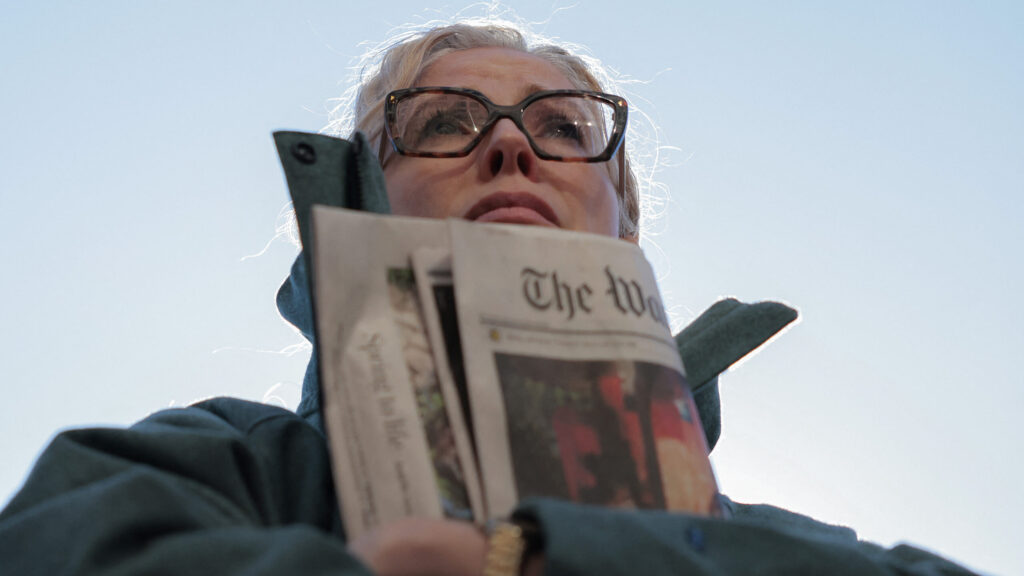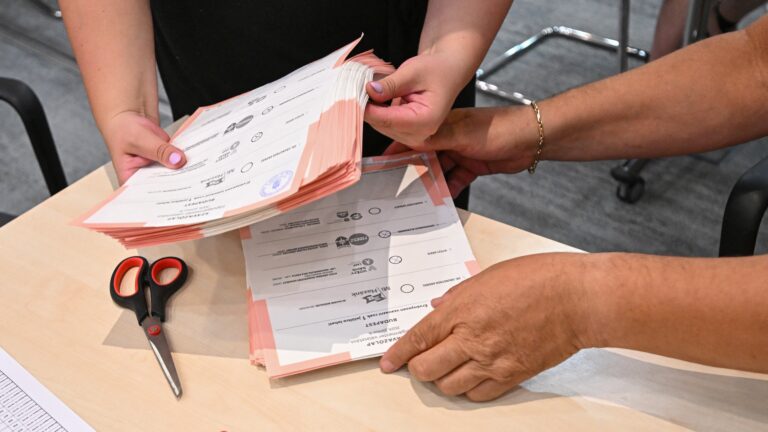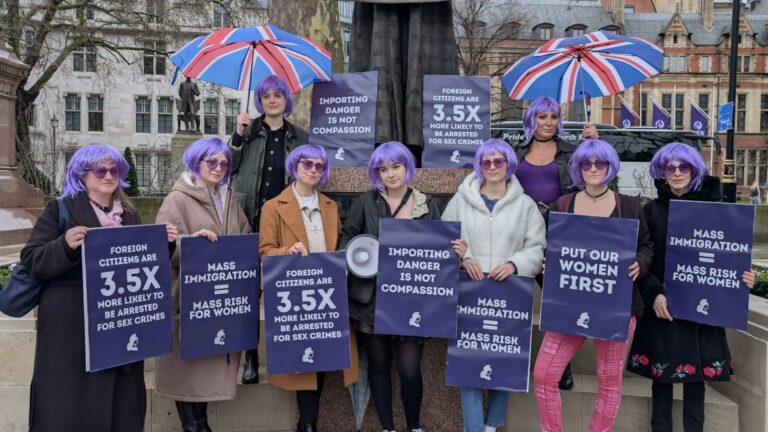Maya Kadosh is an experienced diplomat who has served at the Israeli Ministry of Foreign Affairs for more than two decades. In recent years, she has worked as Foreign Minister Gideon Sa’ar’s Chief of Staff for Foreign Policy, and was previously a Senior Political Advisor to former Foreign Minister Yisrael Katz. Kadosh has been Israel’s ambassador to Hungary since March.
***
The United States entered the war, which is a positive development from an Israeli perspective, while others see it as a serious mistake.
For Israel, this is a historical moment. For many years, we’ve been under the threat of a nuclear Iran. Iran has not only threatened us on the nuclear front but also sponsored terror attacks against us. What we saw on 7 October was planned and sponsored by Iran. Later on, Hezbollah, and then the proxies, carried out terror attacks against our embassies overseas, while also developing missiles that reach not only Israel but also Europe. On top of that, there are their nuclear ambitions. All this time, they say they’re going to wipe Israel off the map and eliminate Israel, using language that indicates not just that they want to hurt Israel but that they truly want us gone. For Israel, this is a historical moment; the fact that the Americans intervened and dismantled the nuclear programme is huge.
Iran threatened that it would respond with a ‘decisive response’ and ‘targeted operations.’ There could be some terrorist attacks, rocket attacks, or surprises. Are you prepared for this?
Of course, we knew that this war would come at a cost, and when it started, the first phase was to eliminate many of Iran’s capabilities to harm Israel. Every night, we see that we are managing to demolish more and more launching sites. We are targeting the rocket factories, but still, the Israeli Home Front is paying a very heavy price. Of course, we are also on high alert regarding our embassies. However, when you compare it to the historical achievements, I believe the Israeli people are very resilient and willing to pay this price to ensure that their children can live in the country for the long term.
Is there any chance that your experts and intelligence miscalculated the capabilities of Iran? You mentioned Israeli society. Could it be that your society is growing tired of the prolonged pressure from what Iran will do to you?
The current scenario is unfolding according to plan. I think if anyone was surprised, it is the other side; Iranian capabilities have diminished over time.
‘They are willing to pay this price to ensure that their children can live in the country for the long term’
In the first few days, they spoke of hundreds of missiles being fired at Israeli civilian population centres. That is not the case. I’m not saying that it couldn’t happen or that it might not happen in the future, but it appears that the military operation is very successful. We should, of course, be very careful, and society is 100 per cent behind the government.

There were demonstrations against the Netanyahu government, and some Israelis were surprised that the Iron Dome was not hermetically sealed, as several Iranian rockets had reached Tel Aviv and Jerusalem. So, there are counterarguments.
At this point, there is no coalition in the opposition. There are no demonstrations, as all the opposition leaders are standing with the government. Again, I don’t think people understand how historic it is for the Israeli people and the Jewish people during these times. Of course, we always want to have 100 per cent protection, but that is not always the case. Even if the Iron Dome works 97 per cent of the time, when 100 missiles are launched, three of them can fall on population centres. The fact remains that Iran, at the end of the day, is a terrorist state. They do not target only military sites but also hospitals, buildings with babies, children, and vulnerable people. So, of course, there is a price we pay, and it’s very unfortunate, but overall, the Iron Dome works quite well.
The Russian president, Putin, met with the foreign minister of Iran, and they are calling the conflict a ‘common threat’, so there might be a front against you and the Western powers. If China joins, that would create a terrible scenario, wouldn’t it?
I’m glad to say that the Russians and the Chinese, as of now, are calling for a peaceful solution. I think the American president was also very clear when he told Iran: ‘We targeted the nuclear facilities, we achieved our goals, come to the negotiation table and save yourself in the end.’ The Russians and the Chinese are also not interested in a large-scale war now between Iran and Israel. Thus, we see all the players in the international arena calling for peace, seeking a peaceful solution, and urging the Iranians to give up their nuclear programme. I hope this will continue.
‘The fact remains that Iran, at the end of the day, is a terrorist state’
Is there any chance that your casus belli is false? In 2003, British and American intelligence made a mistake; Saddam Hussein’s army didn’t possess weapons of mass destruction. Is there a chance that it will be revealed later that Iran only had a peaceful nuclear programme?
Well, first of all, the claim that Iran had a military nuclear programme didn’t come from Israel; it came from the IAEA. All the reports, especially the last one, state that they are enriching much more than what they had to: 60 per cent. They are the only country that claims to have a peaceful nuclear programme that has enriched to 60 per cent. There’s no need to enrich to 60 per cent, and this was decided by the agency itself and by the international community. Israel is definitely not going to invade Iran. We don’t have a common border, so that’s out of the question.
So, definitely, based on your intelligence and that of the Americans, Iran is acting in bad faith in claiming that it only has a peaceful nuclear programme.
It’s not just Israel and the Americans; the Europeans also share this view. You can see the reports from the IAEA and all the international agencies. And you know that international forums are usually not very eager to support Israel, so if they have already claimed that this is not for peaceful aims and goals, we should believe them.
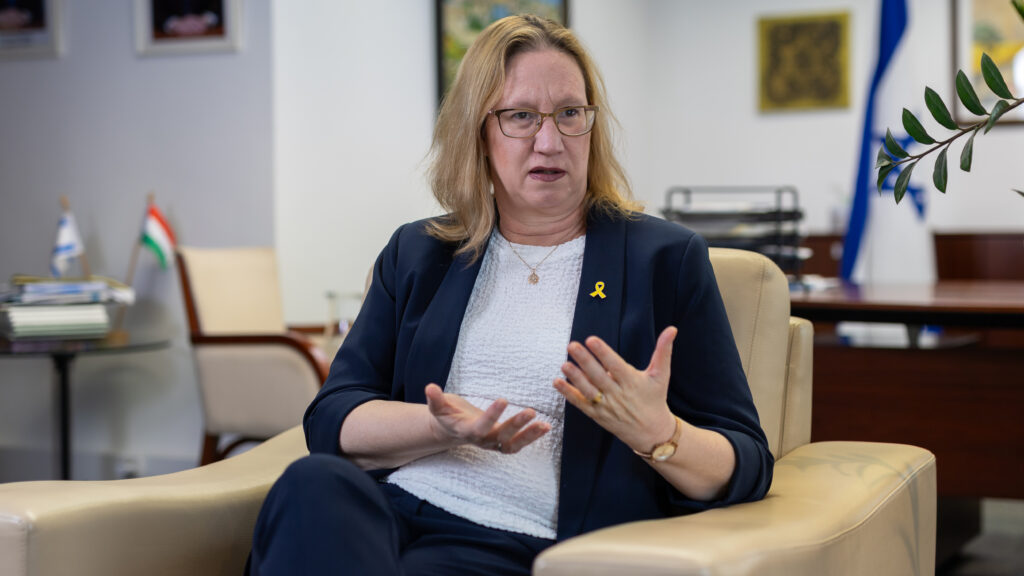
This is a preemptive war by Israeli terms and justification, but many in the international community call Israel an aggressor. Some say Israel has committed war crimes against the civilian population in Gaza and violated international law through land grab policies in the West Bank and Golan. These are serious claims against Israel. What is your response? What is the justification for what you are doing?
Well, you have a lot of issues in the same question. I will try to address them one by one. On the Iranian front, yes, Israel took a preemptive step; we opened this war, and we planned it for a long time. That was because we waited to act until the last minute. The enrichment of uranium to 60 per cent occurred, I believe, only in the last six months. Also, the ballistic missile programme that threatens Israel and Europe has been developed in the last six months, and the Iranians just declared they want to develop 10,000 more missiles. So, if you look at what’s happening now in Israel, in this war, there have been over 1,000 missiles; we must consider what could happen to us with ten times more.
‘They are the only country that claims to have a peaceful nuclear programme that has enriched to 60 per cent’
I think when the international community criticizes us, and it relates to both the Gaza issue and the Lebanese issue, it is easy to live here in Europe and enjoy a peaceful life while criticizing Israel for doing X or Y. However, if people put themselves in our shoes and understand the heavy price we are paying, what happened to us on 7 October, when a terror organization attacked us, killed babies, and raped women in an incredibly cruel manner, they would see that negotiating with this terror organization and allowing them to keep their weapons while just waiting to see what happens is not a viable option. I’m sure every person here in Europe, if they were to put themselves in our shoes, would understand that we had no other choice. If we want to live in the Middle East as a democratic country with democratic values and defend ourselves, this is the only way we can act.
And all the damage that comes with this, was it necessary? Like tens of thousands dead in the civilian population, or the humanitarian aid conflict, where Israel claims one thing and the international aid organizations claim the opposite. So, are these matters the necessities of the war?
First of all, I wouldn’t believe all the numbers that come from the Palestinian side. Time and again, they have been proven to be wrong. At the end of the day, we are dealing with a terrorist organization that hides behind civilians. If you go into the headquarters of Hamas in Gaza, you will see it for yourself: it’s located under a school, under a hospital, or in tents in the humanitarian area. Meanwhile, the Israeli army is always compelled to act. In Israel, during war, all citizens go underground to hide and take shelter, and the army defends them. With Hamas, it’s exactly the opposite. They use tunnels to keep themselves safe while putting all the women and children, their own people, at risk.
‘We planned it for a long time. That was because we waited to act until the last minute’
The same applies to humanitarian aid. Every time the UN tries to send a truck in, Hamas steals it and sells it for profit to its own people—something they received for free from the international community. So, the only mechanism that works now is the American–Israeli mechanism, which has managed to deliver millions of meals to the Palestinian people. The UN is a political organization that refuses to work with the American–Israeli mechanism. It’s unfortunate. They can keep sending trucks in and fail once again, ultimately giving aid into the hands of Hamas, a terrorist organization. They can choose only to work with what actually feeds people on the planet, and it is very unfortunate that they opt to give humanitarian aid in the end to Hamas.
The third issue was a land grab policy, which is the foundation of all the problems. You call Iran a state sponsor of terrorism while it claims to support the liberation fight of the Palestinian organizations against the Zionist occupation. There is a claim that you have seized the land of the Palestinians, and if we consider the geography, that could be true. So, what is the policy?
The only framework currently on the table for negotiation and diplomacy is the Witkoff plan. The Witkoff plan calls for a ceasefire, the return of land to the Palestinian people, and, of course, the release of all hostages. Israel has repeatedly agreed to the Witkoff plan, while Hamas has repeatedly denied it. At the end of the day, if you say there is one plan available and a diplomatic solution being supported by the international community, both America and Europe, and Hamas refuses, it is very unfortunate for the people living in Gaza. I feel their pain. It’s not that we are at war with the people of Gaza, but the fact is that Hamas could end this war in an hour, right? They could release the hostages; it would take them 24 hours. They could put down their weapons and step outside, and no one in the Palestinian territory of Gaza would be harmed. Yet they choose not to do so. So, blaming Israel for all of that all the time is not the right thing to do.
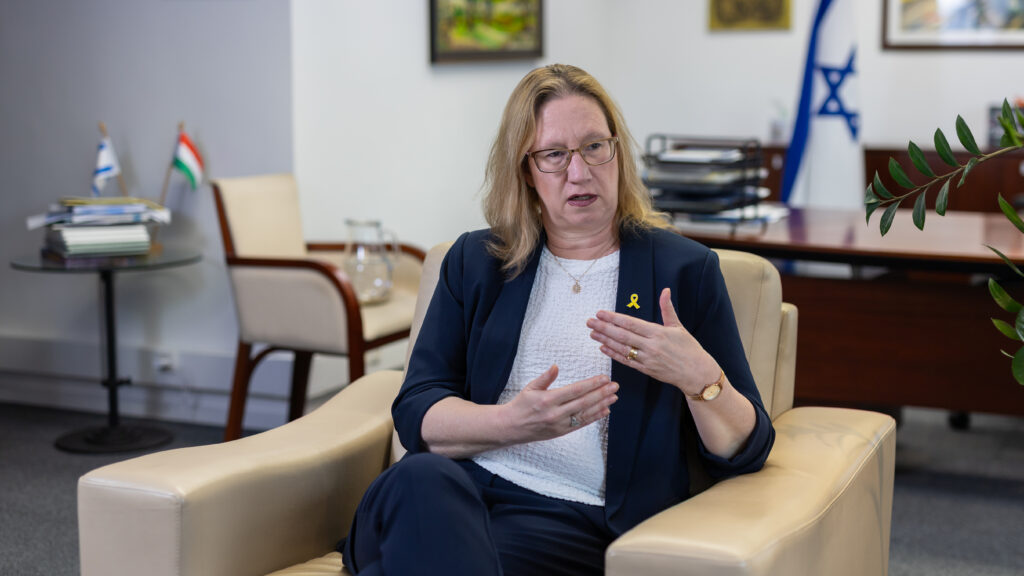
Let’s revisit the Iranian conflict and what you described as a historic turning point: American B2s dropped ‘bunker buster’ bombs on Iranian nuclear facilities, yet we still lack evidence, and many experts suggest that it may take weeks to evaluate what occurred. What is your assessment? Did the US bombers reach their targets and eliminate them? Is it a certainty?
We do not have that information yet. It will take time to understand the extent of the damage done. We know that it was very accurate, based on good intelligence, and we hope that all the objectives were achieved.
‘There have been over 1,000 missiles; we must consider what could happen to us with ten times more’
There are two branches of the Iranian army. You feel that there was a military-purpose nuclear programme. If the American action was successful, then probably one branch is neutralized. The second branch is the ballistic missile programme. If you eliminate them too—it’s a hypothetical question—will you stop? Or will you continue the war, because the real purpose of your war is to topple the government of Iran?
No, definitely not. It was decided by our government and by our Defence Security cabinet that there are only two goals of the war: to dismantle the nuclear programme and to dismantle the ballistic missile programme, and once this is achieved, Israel has no more aims or goals with Iran.
Are you ready to reach an agreement with the Ayatollah regime, or only with a democratic type of Iranian government?
The issue of governance in Iran is for the Iranian people to decide, and we do not interfere in that. It is not one of our goals. I guess it won’t be a direct negotiation because we don’t have direct relations with them, but the international community can engage in that. Once Israel achieves its military objectives, we will be able to halt this.
If there were a kind of agreement between Israel and Iran, could there be a peaceful Middle East? In the past, Persian and Jewish people cooperated, and the Abraham Accords could extend with more Arab states involved. Is it a realistic future?
If you ask me personally, I’m very optimistic about the Middle East we are going to see. I believe we are going to witness a new Middle East. First of all, the Iranian people and the Israeli people have a long tradition of very good relations. They are all nations with many common values at the end of the day. We have a large community of Persian Jews in Israel, and I see a lot in them. On social media, in the comments, you see the wish of the Iranian people to be free, and this will also change the Middle East.
‘The issue of governance in Iran is for the Iranian people to decide, and we do not interfere in that’
We talk a lot here in Hungary about energy prices. So, think about what a peaceful Middle East could do to energy prices and the ability to cooperate and have a landline between the Middle East and Europe. I personally believe we are going to face a completely new scenario.
There is a worse scenario, too. If the war goes wrong, Israel will become the enemy of everybody. And if your enemies are restructuring after this war, there could be a more difficult security situation. Do you consider that, too?
I don’t think this is a realistic scenario because, if you look at the Middle East today, most of the countries have been in conflict with Iran, and they are, I’m sure, very glad about what Israel is doing now because it also takes the threats away from them. If you look at the history of the Abraham Accords, those countries that initially got close to Israel are under Iranian threat. So, I think the chances that these countries, which are part of the Abraham Accords, will now act against Israel are very limited. On the other hand, I think everyone understands that this regime is dangerous for everyone in the Middle East and that it threatens everyone there, and that is a good thing if it is gone.
Watch the full podcast below:
Could the Israeli-Iranian war become a global conflict? | Danube Lectures
Listen on Spotify: https://open.spotify.com/episode/0WxHEGrLECL7IOpCKeGNHg?si=lvRe6RztRVGMXfHQsL3A6Q 0:00 – Introduction 0:46 – With the U.S. joining the war, is it a turning point or the point of no return in escalation? 2:22 – Is Israel prepared for the worst-case scenario, the Iranian methods of retaliation? 7:03 – With U.S.
Related articles:




